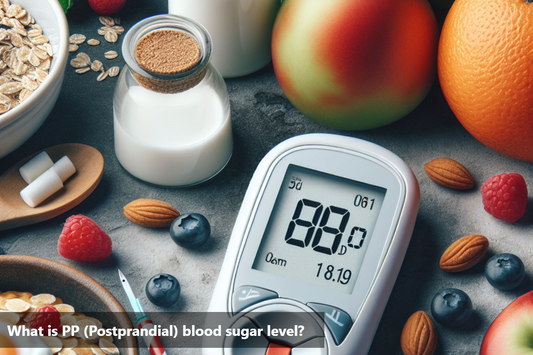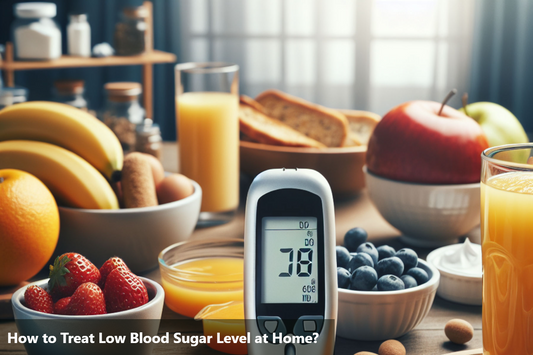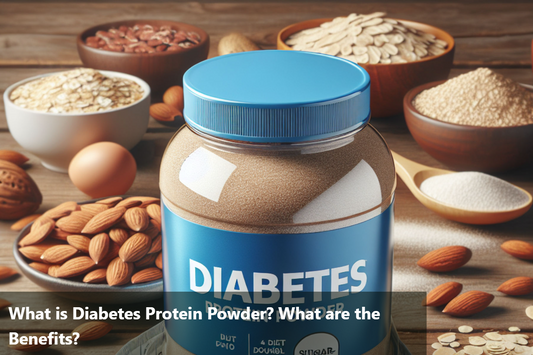Red bananas have a deep red/purple skin and sweet flavor, packed with essential nutrients like Vitamin C, Vitamin B6, potassium, and fiber. These nutrients help support overall health, especially for those with diabetes. Red bananas have a lower glycemic index than regular bananas, making them a good choice for managing blood sugar levels. They also contain Vitamin B6, promoting metabolism and immune function. Including red bananas in a balanced diabetic diet can offer health benefits. Consult a healthcare professional before making dietary changes.
Nutritional value of red bananas
|
Nutritional components |
Value per 100 g |
|---|---|
|
Energy |
89 kCal |
|
Carbohydrates |
22.84 g |
|
Fibre |
2.6 g |
|
Protein |
1.09 g |
|
Fats |
0.33 g |
|
Potassium |
358 mg |
|
Magnesium |
27 mg |
|
Phosphorus |
22 mg |
|
Vitamin C |
8.7 mg |
|
Calcium |
5.0 mg |
|
Sodium |
1.3 mg |
|
Vitamin B9 |
13.6 mcg |
Effects of red bananas on blood sugar levels
-
Lower Glycemic Index: Red bananas have a lower glycemic index compared to regular bananas, leading to a slower rise in blood sugar levels after consumption.
-
Resistant Starch Content: The resistant starch content in red bananas may contribute to improved glycemic control and insulin sensitivity in diabetic individuals, minimizing the postprandial blood glucose response and enhancing insulin sensitivity.
-
Rich in Fiber: Red bananas are rich in fiber, which aids in regulating blood sugar levels by slowing down the absorption of sugars and improving overall glycemic control.
Incorporating red bananas into a diabetic diet
-
Eating Red Bananas in Moderation: Red bananas can be a beneficial addition to a diabetic diet when consumed in moderation.
-
Pairing Red Bananas with Balanced Meals: Incorporating red bananas into a well-rounded meal or snack, such as adding sliced red bananas to oatmeal or yogurt, can help enhance the nutritional content of the meal while providing natural sweetness.
-
Considering Portion Sizes: It's important to be mindful of portion sizes when consuming red bananas, aiming for one medium-sized red banana at a time to control carbohydrate intake.
-
Seeking Professional Guidance: Consulting a dietitian or healthcare professional can offer personalized advice on integrating red bananas into a diabetic meal plan and optimizing the benefits while effectively managing diabetes.
Differences between Normal Banana and Red Banana for Diabetes:
-
Glycemic Index: Red bananas have a lower glycemic index compared to normal bananas, making them better for controlling blood sugar levels in individuals with diabetes.
-
Nutrient Profile: Red bananas are richer in certain nutrients like vitamin C and antioxidants compared to normal bananas, which can be beneficial in managing diabetes and improving overall health.
-
Taste and Texture: Red bananas have a slightly different taste and texture than normal bananas, which may be preferred by individuals looking for variety in their diet while managing diabetes.
-
Digestibility: Some people find red bananas easier to digest compared to normal bananas, which can be beneficial for those with diabetes who may have gastrointestinal issues.
-
Fiber Content: Both normal and red bananas are good sources of fiber, which is important for managing blood sugar levels in diabetes, but red bananas may have a slightly higher fiber content.
-
Overall Impact on Blood Sugar: While both types of bananas can be included in a diabetes-friendly diet in moderation, red bananas may have a slightly lower impact on blood sugar levels due to their lower glycemic index and higher fiber content.
Bottom line:
Red bananas have a low glycemic index, fiber, resistant starch, and essential vitamins and minerals. These can help with blood sugar management and overall health. While they seem suitable for diabetes, caution is necessary. Seeking advice from healthcare professionals like dietitians or diabetes specialists is advisable for personalized recommendations. It's important to evaluate how red bananas fit into an individual's diabetic management plan due to varying responses to food.
Confused if a product is Diabetic friendly or not? DiabeSmart is the first Food product range exclusively designed for Diabetics. Clinically tested and great tasting; so your food habits don't need to change.
FAQs:
Is red banana good for diabetes?
-
Yes, red bananas have a lower glycemic index compared to regular bananas, making them a better option for managing blood sugar levels.
How many red bananas can I have if I have diabetes?
-
It is recommended to consume red bananas in moderation, typically 1-2 servings per day, as part of a balanced diet.
What are the benefits of red bananas for diabetics?
-
Red bananas are rich in fiber, vitamins, and minerals, which can help improve digestion and regulate blood sugar levels in individuals with diabetes.
Are there any precautions to consider when eating red bananas with diabetes?
-
Individuals with diabetes should monitor their blood sugar levels after consuming red bananas and adjust their intake based on their individual responses.
Can red bananas be included in a diabetic meal plan?
-
Yes, red bananas can be incorporated into a diabetic meal plan as a healthy and nutritious fruit option, along with other low-glycemic foods.
This Blog post is an initiative by DiabeSmart, to provide accurate and Nutritionist / Doctor approved information related to Diabetes. DiabeSmart is India's first Food brand designed specifically for Diabetics, that has been clinically tested on Diabetics and Pre-Diabetics to deliver 55% - 70% lower Sugar spikes. DiabeSmart is part of Lo! Foods - India's leading brand for Everyday Functional Health foods.















